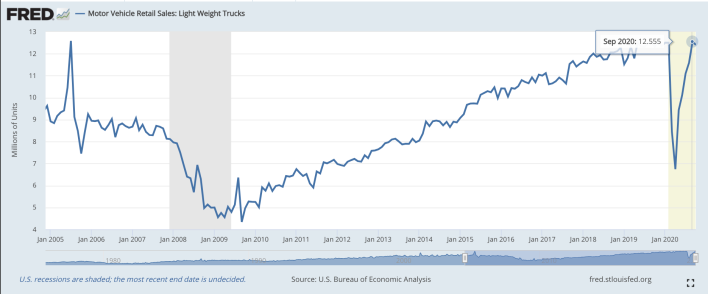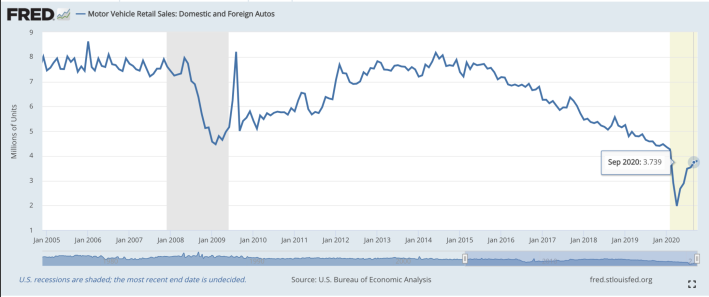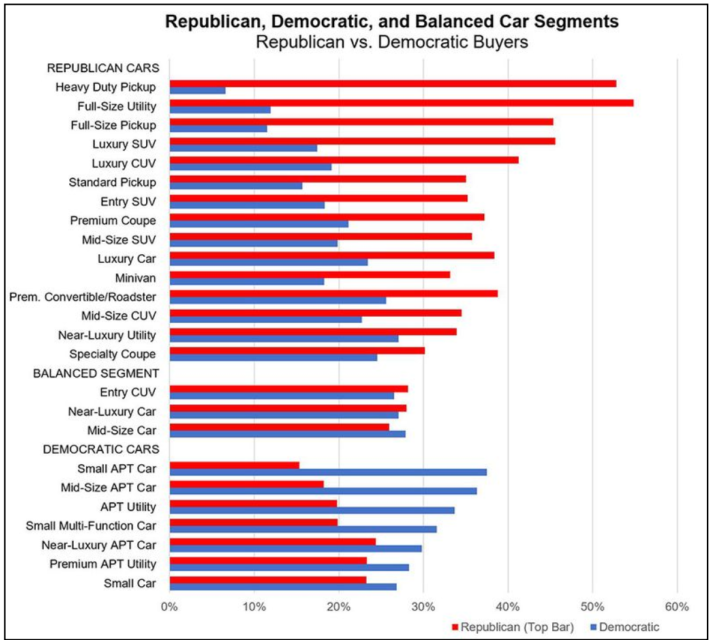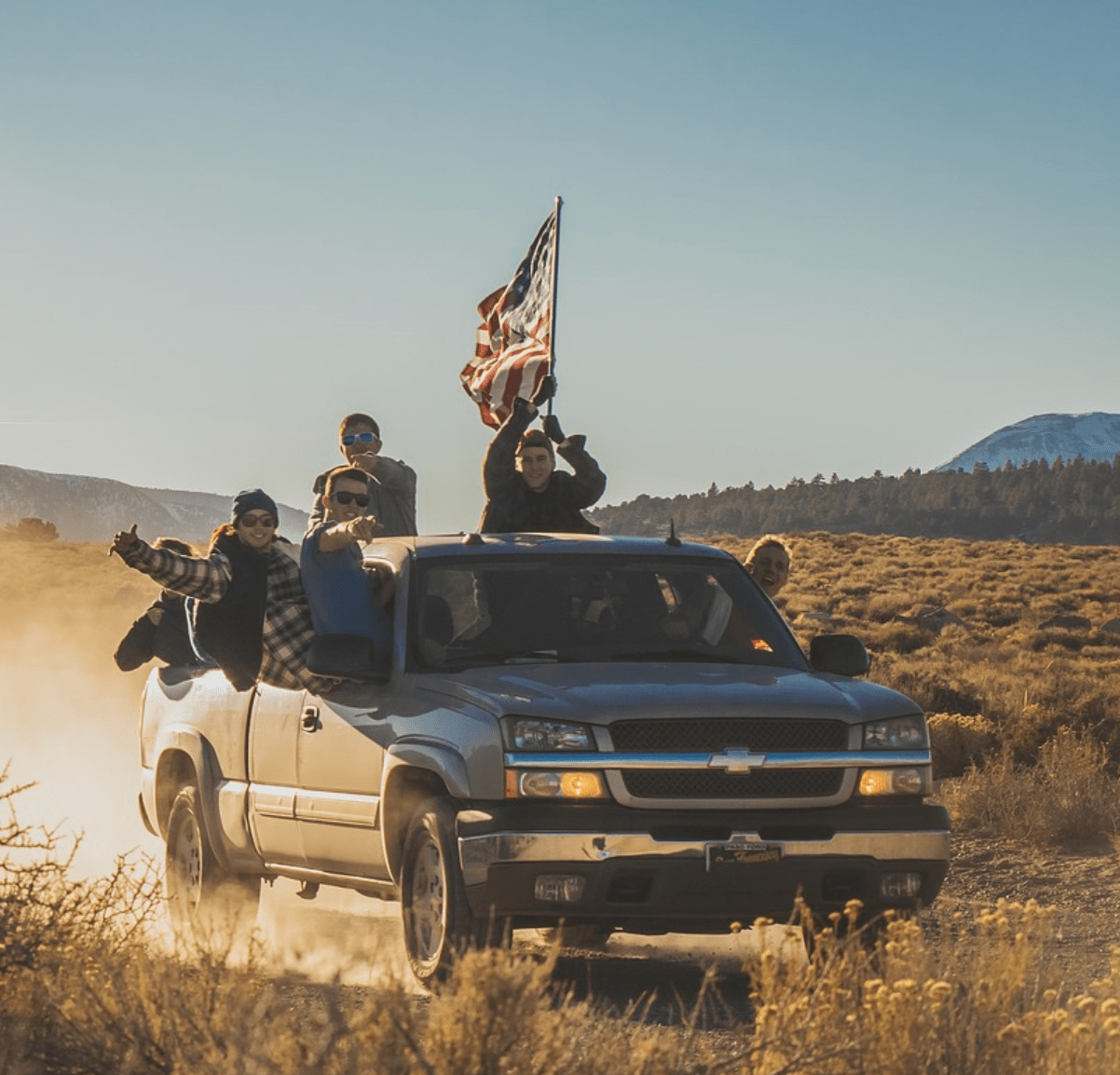U.S. car buyers almost tied the all-time record for truck and SUV purchases just weeks before Americans elected a president who wants to get rid of gas-guzzlers by 2050.
According to data from the Federal Reserve, Americans bought a whopping 12.55 million vehicles in September classified as light trucks (which includes most sport utility vehicles, vans and crossovers), almost tying the all-time record of 12.59 million units sold in July 2005, in the heyday of the real estate bubble that would go on to burst, causing the 2009 economic crisis.

Smaller automobile sales, by contrast, are only barely beginning to climb out of their COVID-19 trough. Dealerships reported 3.74 million vehicles sold in September – a big jump from the historic low of 1.97 million sold in April, at the height of the COVID-19 lockdowns. But the September numbers are still 14 percent lower than the previous 45-year nadir, which came in the depths of the 2009 recession. (It probably doesn't help that automakers are rapidly phasing out small cars.)

Source: FRED
Put the two numbers together, and sales of cars and light trucks are actually up 5 percent above the same month in 2019, despite the fact that the country is suffering from steep unemployment and a global pandemic. The surge is almost exclusively being driven by people who are buying oversized vehicles.
America's growing appetite for megacars may seem odd in the wake of the presidential election, in which a margin of roughly 5 million Americans elected a candidate who has pledged to invest in transit and electric vehicles.
But, of course, who shows up to the ballot box doesn't always look like who shows up to the auto dealership.
The Federal Reserve does not collect monthly data on the political affiliation of car buyers, but some evidence suggests that GOP voters may simply be purchasing more vehicles right now than their Democratic counterparts. In a recent survey of 46,000 Americans, Republicans not only constituted the largest share of the car-buying market (33 percent) — groups with similar vehicle aesthetics and presidential voting habits, libertarians and conservatives, constituted another 11 percent — but they also made up a whopping 55 percent of the SUV market.
When it comes up to pick-up trucks, Republicans out-buy Democrats a staggering eight to one.

The same study also found that voters who self-identify as Democrats, liberals or progressives are more likely to forgo private-car ownership, or at least own their cars for a little longer before they trade them in for new models. Although the average car on U.S. roads is 12 years old, Republicans are more likely to own a vehicle for just three to six years before they upgrade. Pair that with the fact that blue states experienced the nation's highest unemployment rates in September, and it's likely that the car buyers flooding dealerships right now mostly lean to the right — and that climate-minded would-be Prius buyers are holding off until next year.
Of course, if we really want to end climate change and our roadway-death crisis, we don't just have to lower the proportion of monster trucks on our neighborhood streets. We have to decrease the number of cars period, including the low- and non-emitting ones, while enacting strong vehicle-safety standards on every model — and giving every resident safe, convenient and affordable ways to get around without a private motor vehicle.
The auto industry's latest successes should serve as a sign that we are long overdue for a bold, new federal vision — and if nothing else, we should probably make it a little less attractive for Americans to constantly buy the biggest cars they can get.






